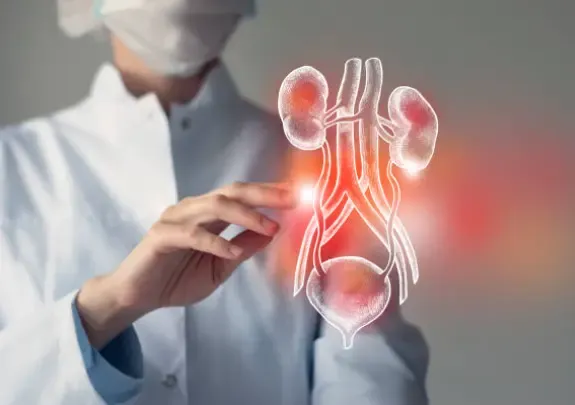Bladder issues can be frustrating and disruptive to daily life. Whether you experience frequent urination, urgency, or a leaky bladder, it's important to understand the underlying causes to find effective solutions. While searching for answers, you may come across numerous articles that provide little valuable information. However, there is one key factor that often goes unnoticed – a deficiency in a specific vitamin.
The Common Thread: The Nervous System and Bladder Problems
To truly comprehend the connection between bladder issues and vitamin deficiencies, we must first delve into the intricate workings of the urinary system. The bladder, a muscular organ responsible for storing and releasing urine, is surrounded by a muscle called the detrusor muscle. The control of this muscle, as well as the overall urinary system, is closely linked to the nervous system.
The primary control center for urine elimination is a part of the brain known as the periaqueductal gray matter. This region connects to the nervous system and plays a crucial role in bladder control. Surprisingly, this part of the brain is highly susceptible to a deficiency in vitamin B1, also known as thiamine. When the brain lacks sufficient levels of thiamine, the entire bladder control system can be compromised.
The Impact of Vitamin B1 Deficiency on Bladder Function
Vitamin B1 is essential for maintaining optimal neurological function, including the control of the bladder. Research has revealed a strong link between vitamin B1 deficiency and various bladder problems, regardless of whether the bladder is overactive or underactive.
For instance, individuals with diabetes, particularly Type 2 diabetes, often experience bladder issues. This connection can be attributed to diabetic autonomic neuropathy, a condition that affects the autonomic nervous system. Vitamin B1 deficiency further exacerbates this problem, as it is crucial for nerve function and the production of the myelin sheath that surrounds the nerves.
Moreover, a deficiency in vitamin B1 can lead to a lack of energy production, particularly from carbohydrates and glucose. Since the brain relies heavily on glucose for energy, a deficiency in vitamin B1 can starve certain neurons, resulting in their dysfunction. In the case of bladder control, the region of the brain responsible for regulating the bladder may shrink and lose functionality.
Correcting Vitamin B1 Deficiency for Improved Bladder Health
Now that we understand the importance of vitamin B1 in bladder function, it's crucial to address the deficiency to alleviate bladder issues effectively. Here are some steps you can take to correct the deficiency and improve your bladder health:
1. Supplementation with Different Forms of Vitamin B1
To address a vitamin B1 deficiency, it is recommended to supplement with two different types of B1: benfotiamine, a fat-soluble form, and natural water-soluble B1. It is important to ensure that the B1 supplements are natural, not synthetic, to ensure maximum effectiveness. Taking both forms of B1 for a period of two to three months can help replenish your B1 levels and promote improvement in bladder function.
2. Preventing B1 Depletion
To prevent further depletion of vitamin B1, it is essential to make dietary changes. One of the main culprits behind B1 depletion is a high-carbohydrate diet. By adopting a low-carb diet and incorporating intermittent fasting, you can minimize B1 depletion and support overall bladder health.
3. Diluting Urine Concentration
The concentration of urine plays a significant role in bladder issues. By ensuring adequate fluid intake throughout the day, you can dilute the urine, reducing the need for frequent urination. Aim to drink at least two and a half liters of fluid daily, while avoiding excessive fluid intake before bedtime.
Additionally, incorporating apple cider vinegar into your water can be beneficial, especially if you have insulin resistance. Apple cider vinegar has been shown to help regulate blood sugar levels, which can indirectly impact bladder health. Add one to two tablespoons of apple cider vinegar to your water and consume it regularly.
4. Reducing Caffeine Consumption
Caffeine consumption can have a significant impact on bladder function. By reducing your intake of caffeine-containing beverages, such as coffee, you can alleviate bladder problems. Limit yourself to a small cup of coffee in the morning, and opt for decaffeinated options throughout the day.
5. Manual Massage of the Bladder
In some cases, the bladder may become congested or atrophied over time. Manual massage of the bladder can help stimulate blood flow and improve tone. Gently press and massage the bladder area within your comfort level to encourage better bladder function.
Conclusion
Bladder issues can be distressing, but understanding the root causes can lead to effective solutions. The #1 vitamin deficiency behind bladder issues is a lack of vitamin B1. By addressing this deficiency through supplementation, dietary changes, and other strategies, you can improve bladder function and experience relief from frequent urination, urgency, and a leaky bladder. Remember to consult with a healthcare professional before making any significant changes to your diet or starting a new supplement regimen.
With the right approach, you can regain control over your bladder health and enjoy a better quality of life.

